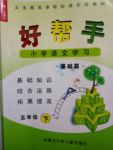题目内容
7.Big trees are incredibly important ecologically.For a start,they provide food for countless other species and shelter for many animals.With their tall branches in the sun,they capture vast amounts of energy.This allows them to produce massive crops of fruit and flowers that sustain much of the animal life in the forest.Only a small number of tree species have the genetic abilityto grow really big.The biggest are native to North America,but big trees grow all over the globe,from the tropics to the forests of the high latitudes(纬度).To achieve giant size,a tree needs three things:the right place to establish its seedling,good growing conditions and lots of time with low adult death rate.Lose any of these,and you will lose your biggest trees.
In some parts of the world,populations of big trees are dwindling because their seedlings cannot survive.In southern India,for instance,an aggressive non-native bush,Lantana camara,is invading the floor of many forests.Lantana grows so thickly that young trees often fail to take root.With no young trees to replace them,it is only a matter of time before most of the big trees disappear.
Without the right growing conditions,trees cannot get really bigand there is some evidence to suggest tree growth could slow in a warmer world,particularly in environments that are already warm.Having worked for decades at La Selva Biological Station in Puerto Viejo de Sarapiqui,Costa Rica,David and Deborah Clark and colleagues have shown that tree growth there declines markedly in warmer years."During the day,their growth shuts down when it gets too warm,and at night they consume more energy because theirmetabolic(新陈代谢的) rate increases,"explains David Clark.With less energy produced in warmer years and more being consumed just to survive,there is even less energy available for growth.
The Clarks'theory,if correct,means tropical forests would shrink over time.The largest,oldest trees would progressively die off and tend not to be replaced.According to the Clarks,this might cause a destabilization of the climate; as older trees die,forests would release some of their stored carbon into the atmosphere,causing a cycle of further warming,forest shrinkage and carbon emissions.
Besides,big trees face threats from elsewhere.
73.According to the passage,big trees make great contributions to theecosystem becauseC.
A.they can capture large amounts of energy
B.they determine the change of global climate
C.they provide the essentials for many creatures
D.they can avoid a new cycle of further warming
74.All the following factors are a must for making big treesEXCEPTD.
A.no deadly damage
B.genetic contribution
C.ideal environmentfor growth
D.high-latitude location
75.The word"dwindling"(paragraph3)is closest in meaning to"D".
A.exploding
B.growing
C.changing
D.declining
76.What is the best title of the passageA?
A.Big trees in trouble.
B.Advantages of big trees.
C.Results of big trees'disappearing.
D.Importanceof big trees to humans.
77.What will the author most probably discuss after the last paragraphA?
A.More threats to the existence of big tress.
B.The effect of human activities on big trees.
C.Benefits of big trees to the whole atmosphere.
D.Comparison between common trees and big ones.
分析 本文属于说明文阅读,作者在文章中向我们讲述了大树成长的必要条件,但是如今由于无法完全达到这些条件,所以导致了大树的数量越来越少,作者通过这篇文章呼吁我们要保护大树.
解答 73.C 细节理解题.根据第一段"Big trees are incredibly important ecologically.For a start,they provide food for countless other species and shelter for many animals."可知大树为其他物种提供食物,并为很多动物提供庇护所,故选C.
74.D 细节理解题.根据第二段"To achieve giant size,a tree needs three things:the right place to establish its seedling,good growing conditions and lots of time with low adult death rate."可知一棵树生长需要没有致命的伤害,理想的生长环境,以及良好的遗传,只有D项在文中没有被提到,故选D.
75.D 词义猜测题.根据第三段In some parts of the world,populations of big trees are dwindling because their seedlings cannot survive.可知是因为幼苗无法存活,所以导致了大树的数量下降,故选D.
76.A 标题判断题,通读全文可知作者在本文中提到了大树成长的必要条件,但是由于这些条件无法完全达到,所以大树的数量越来越少,故选A.
77.A 推理判断题.根据最后一段"Besides,big trees face threats from elsewhere."可知除此之外大树还面临着来自其他方面的威胁,所以下文最有可能讲所大树面临的其他威胁.故选A.
点评 考查学生的细节理解和推理判断能力.做细节理解题时一定要找到文章中的原句,和题干进行比较,再做出正确选择.在做推理判断题时不要以个人的主观想象代替文章的事实,要根据文章事实进行合乎逻辑的推理判断.

 小学学习好帮手系列答案
小学学习好帮手系列答案 小学同步三练核心密卷系列答案
小学同步三练核心密卷系列答案| A. | judge | B. | tell | C. | divide | D. | separate |
| A. | on the whole | B. | in general | C. | in conclusion | D. | in other words |
 Danish scientists studied more than 1,000healthy joggers and non-joggers over a 12-year period.Those who jogged at a steady pace for less than two and a half hours a week were least likely to die in this time.But those who ran more than four hours a week or did no exercise had the highest death rates.
Danish scientists studied more than 1,000healthy joggers and non-joggers over a 12-year period.Those who jogged at a steady pace for less than two and a half hours a week were least likely to die in this time.But those who ran more than four hours a week or did no exercise had the highest death rates.